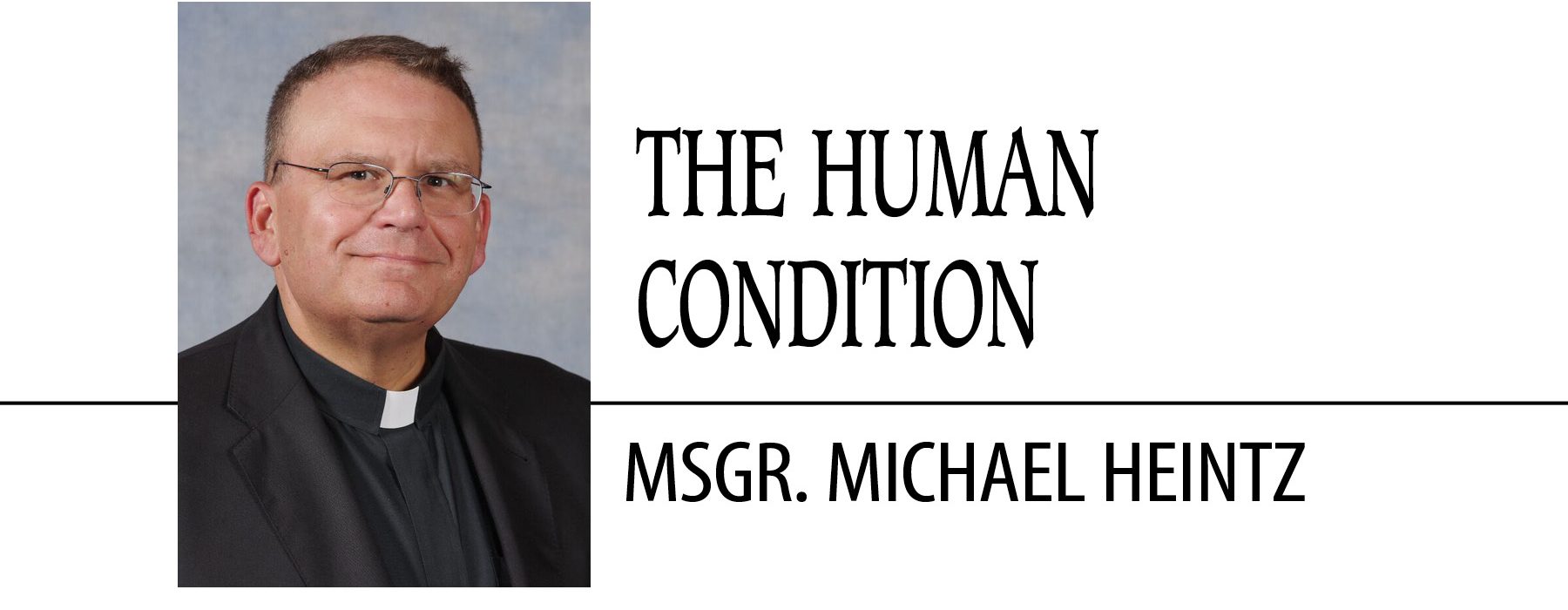December 16, 2020 // The Human Condition
Needing and wanting
There are some things we want more than we need. And then there are things we need more than we want.
Writing more than 1,600 years ago, St. Augustine observed that fallen humans desire temporal goods with greater fervor than eternal goods. However, once possessed, these temporal goods are almost immediately less desirable than when they were not yet possessed. Remember that new product or device you just had to have two years ago? The one that is probably long forgotten or collecting dust somewhere?
He then pointed out, conversely, that eternal goods are actually more desirable once they are possessed, than when initially desired. This is why the world, the flesh, the devil and all that they pander to us are always more desirable than an hour spent in church before the Blessed Sacrament or the recitation of the rosary, for example.
There are some things we want more than we need. Dark chocolate, for example, is something I certainly want more than I need. But there are things we need more than we want. Temporal or material goods are almost always wanted more than they are needed. God, and the life of the Spirit, however, are always needed much more than they are desired or wanted. We need God, even if we do not desire Him or aren’t aware that we do desire Him; St. Augustine tells us that, whether we are willing to realize or admit it or not, God created us for Himself, and our hearts will be restless until they rest in Him.
The Christian life is a continual journey of training our desires and of working to overcome — always under the aspect of grace — the gap that exists in our daily experience between our desire for God and our need for God. Our wanting, or desire, for God should, over time and with the right exercise and tutoring, be moving ever closer to the point of our absolute need for Him. We should always be working to want God more and more and need temporal and material goods less and less. This is the work of a lifetime of faith, hope and charity. This is the life of heroic sanctity witnessed in the saints and martyrs. But it is also the life that each of us is called to. And nothing less.
Ironically, God desires us, but does not need us. Our “fiat,” our “yes” to Him, adds nothing to His majesty, grandeur or goodness. God, as St. Irenaeus would point out two centuries prior to Augustine, stands in need of nothing, and there is nothing that any creature can contribute to God’s utter blessedness or goodness. Even in the face of that fact, He desires us: He wants to be invited into the life of those rational beings He created in love. Yet His entrée can be blocked by the very freedom with which he had so generously endowed these very creatures.
He desires it not because it adds anything to His own goodness, but because it is for our good, our flourishing. The Lord wants to become part of every element of our life: not just our Catholic, or faith, life (if such a thing actually exists as an abstracted part of our life, which is dubious at best and downright dangerous at worst), but He desires to enter into every fiber of our being — body and soul — and purify, heal, enrich, transform and elevate us, enabling us to share more and more in His own divine life: the communion of Father, Son and Holy Spirit. This is why the Catholic Church, in its handing on of the Gospel of Jesus, offers authoritative guidance and moral teaching concerning every aspect of our lives, including, but not limited to, human sexuality, marriage, medical and health care practices, the economy, political and social life, and the raising and formation of children. There is simply no part or area of our life where the Lord Jesus does not wish to enter and to transform.
Strictly speaking, there is no “Catholic part” of our life. Either the whole thing is handed over to the Lordship of Jesus Christ or it’s not: There can be no compartmentalization of our faith to a cordoned-off area that is private. This false distinction or compartmentalization is what leads some Catholics in the social and political sphere to act publicly in ways that are an affront to the Gospel and at the same time claim that they, personally, hold different views. The only way we can truly be happy, the only way we can truly be free, the only way we can truly flourish and attain the destiny, joy and love for which we were made is to allow Jesus Christ to be Lord of every inch of our life, body and soul: every inch of our family, every inch of our job, every inch of our free time, hobbies and recreation.
In the end, when the Son has made all things subject to Himself and has destroyed His last enemy and ours, death, we, in union with Him, will be made subject to the Father. (cf. 1 Corinthians 15.28) And then we will discover that we want Him as much as we need Him.
Msgr. Michael Heintz is on the faculty at Mount St. Mary’s Seminary, Emmitsburg, Maryland.
The best news. Delivered to your inbox.
Subscribe to our mailing list today.






